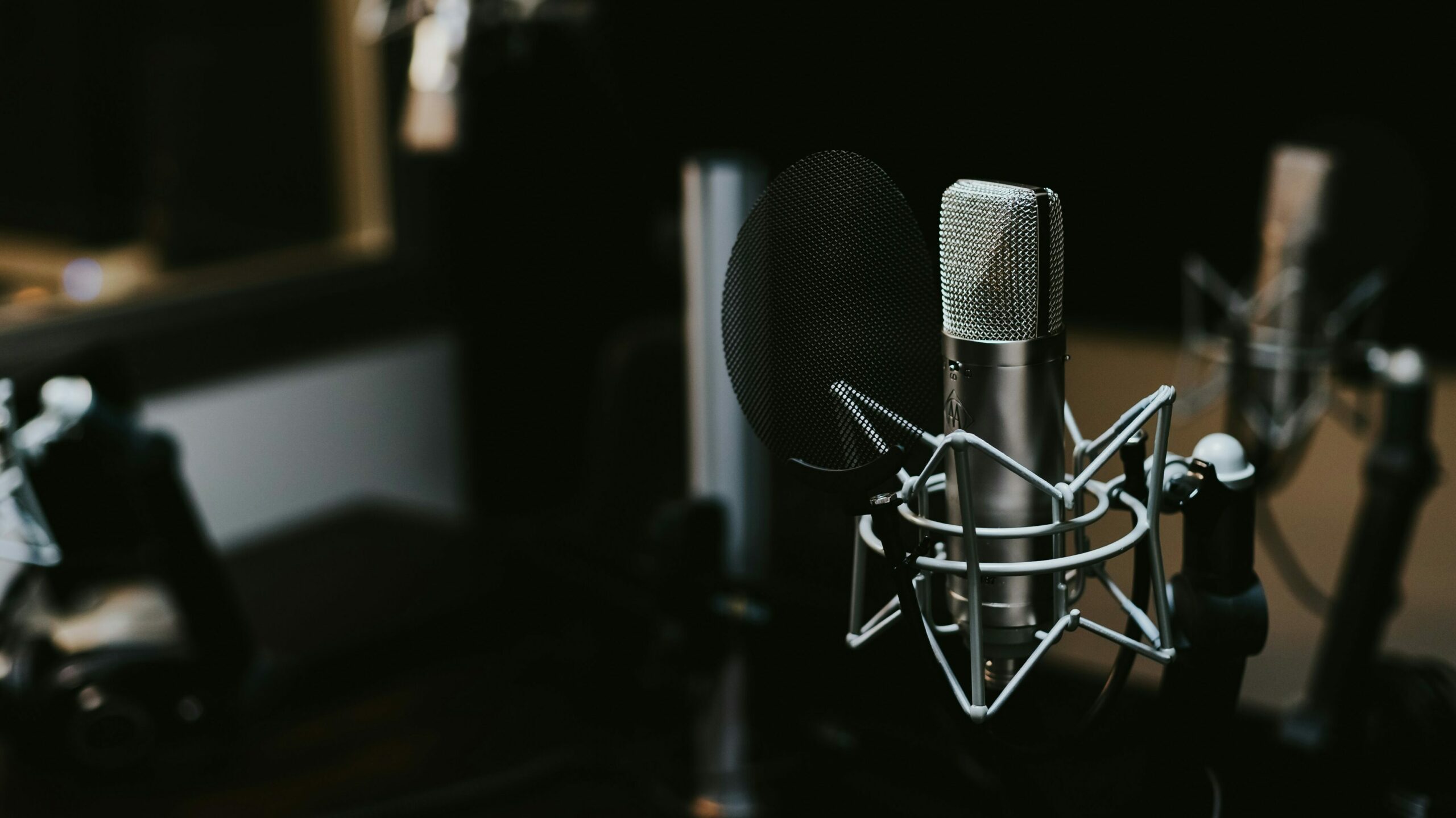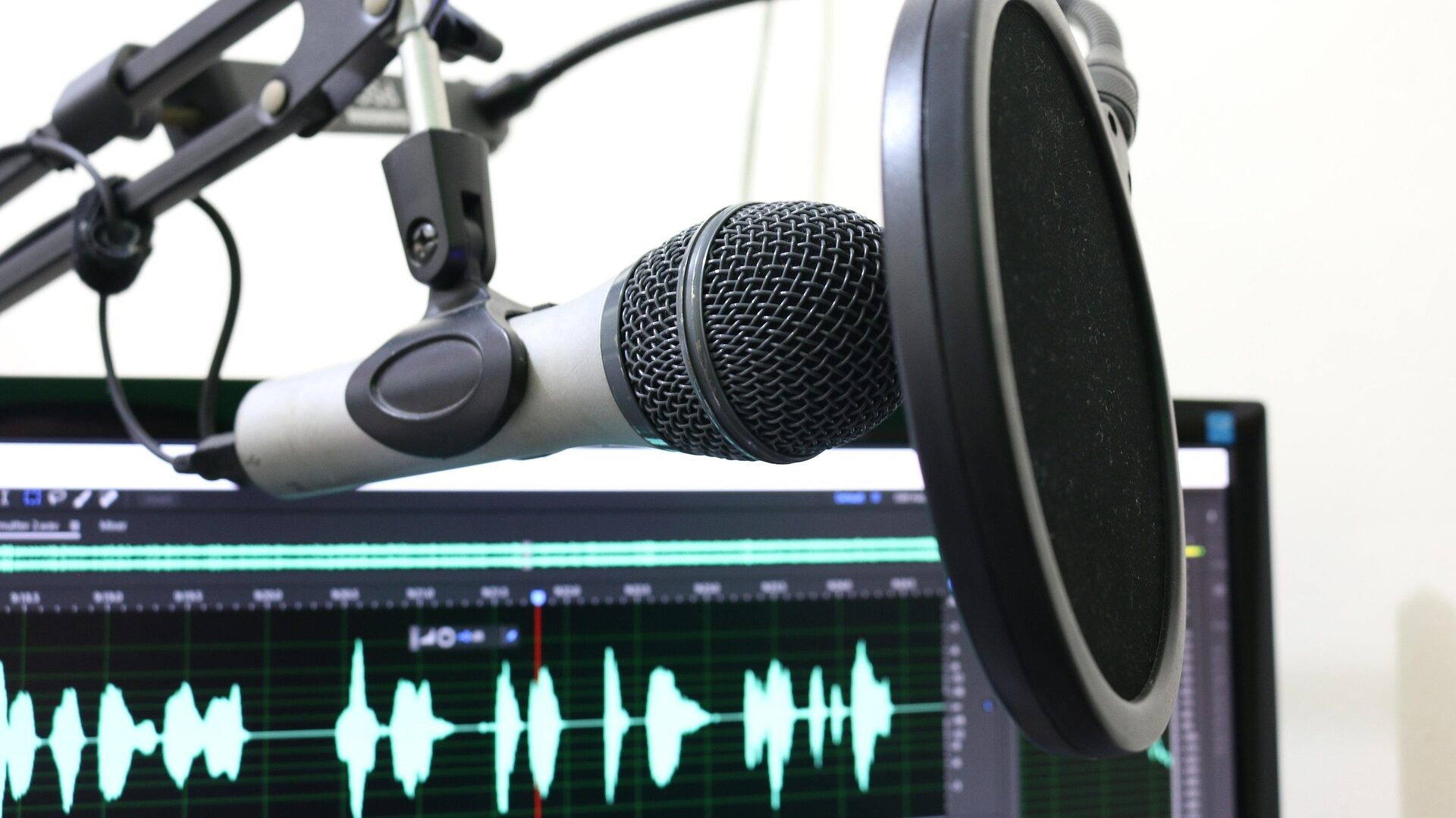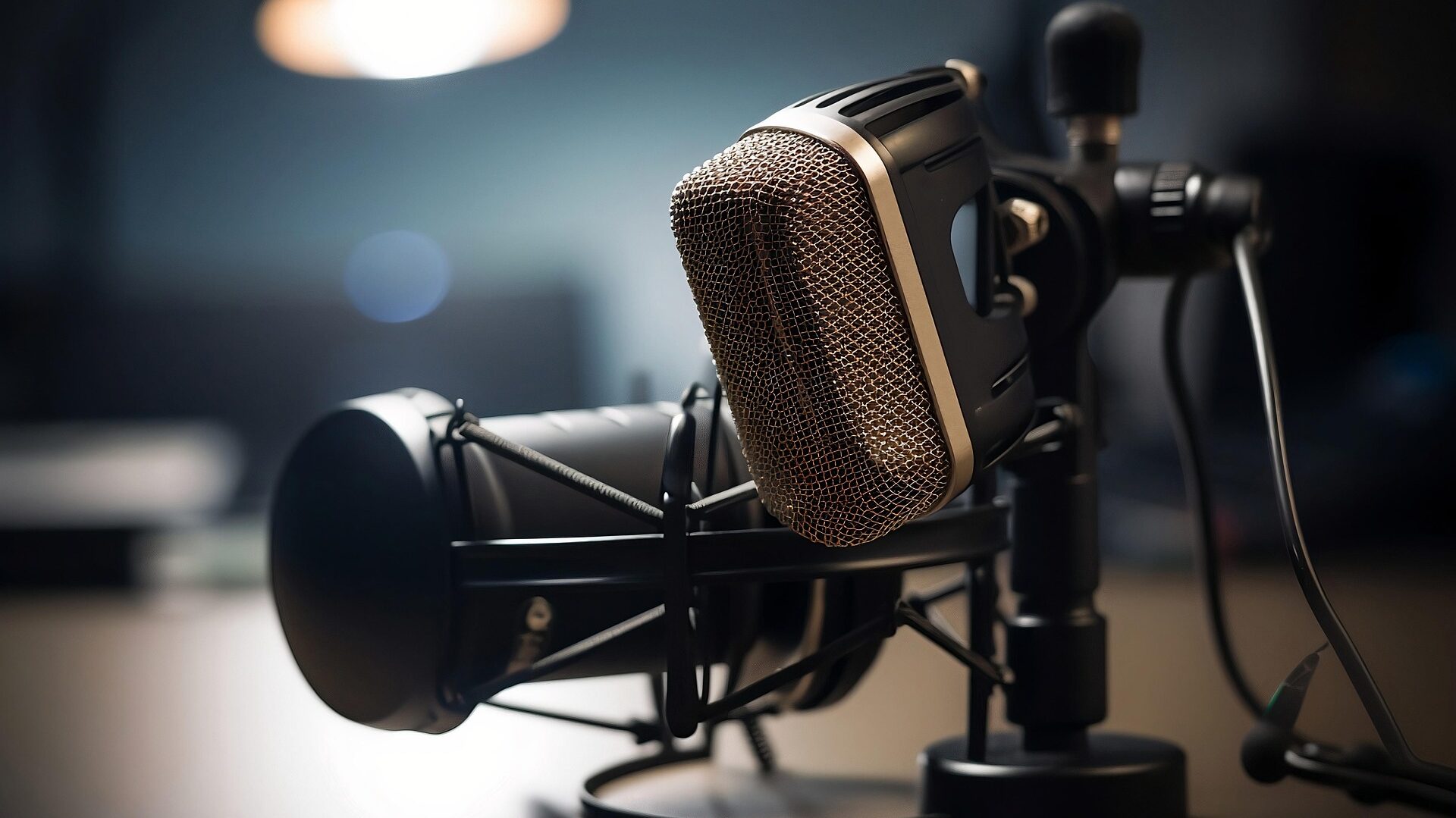Die Welt der Podcasts ist ein faszinierendes Abenteuer, das darauf wartet, von Ihnen erkundet zu werden. Wenn Sie daran denken, einen Podcast zu starten, stehen Ihnen unzählige Möglichkeiten offen, um Ihre Ideen und Themen in ansprechende Episoden zu verwandeln. Mit dem richtigen Mikrofon und einer durchdachten Marketingstrategie können Sie Inhalte schaffen, die Ihre Hörer fesseln und auf Plattformen wie Spotify glänzen. In diesem Artikel erfahren Sie Schritt für Schritt, wie Sie Ihre eigene Website einrichten, einen RSS-Feed erstellen und Ihre ersten Episoden aufnehmen, um Ihre Marke auf das nächste Level zu heben. Lassen Sie sich von paper.li inspirieren und entdecken Sie, wie einfach es sein kann, in die Welt der Podcasts einzutauchen.
Podcast starten: So heben Sie Ihre Marke auf das nächste Level

Warum einen Podcast starten?
Einen Podcast zu starten, bietet Ihnen die Möglichkeit, Ihre Marke auf innovative Weise zu präsentieren und eine treue Hörerschaft aufzubauen. Beginnen Sie mit der Planung Ihrer ersten Episode, indem Sie Themen auswählen, die sowohl Ihre Zielgruppe ansprechen als auch Ihre Expertise unterstreichen. Achten Sie darauf, qualitativ hochwertige Inhalte zu erstellen, die den Hörern einen Mehrwert bieten. Ein gutes Mikrofon ist für die Aufnahme von höchster Bedeutung, da die Klangqualität direkt den Eindruck Ihres Podcasts beeinflusst.
Nutzen Sie Plattformen wie Spotify, um Ihre Episoden zu hosten und über einen RSS-Feed zu verbreiten. Denken Sie daran, Ihre Website als zentrale Anlaufstelle für Hörer zu gestalten, wo sie Informationen zu Ihren neuen Folgen finden können. Eine durchdachte Marketingstrategie trägt dazu bei, Ihre Reichweite zu erhöhen und neue Hörer zu gewinnen. Indem Sie regelmäßig veröffentlichen, bleiben Sie im Gedächtnis Ihrer Zielgruppe und fördern somit langfristige Bindungen.
Die Vorteile eines Podcasts für Ihre Marke
Ein Podcast bietet Ihnen die Möglichkeit, Ihre Marke auf eine innovative Weise zu präsentieren und eine engere Verbindung zu Ihren Hörern aufzubauen. Durch das Erstellen von fesselnden Episoden zu interessanten Themen können Sie nicht nur Ihre Expertise zeigen, sondern auch eine treue Hörerschaft gewinnen. Viele Menschen nutzen Plattformen wie Spotify, um neue Inhalte zu entdecken, was Ihnen zusätzliche Reichweite verschafft. Zudem können Sie durch einen RSS-Feed Ihre neuen Episoden problemlos auf Ihrer Website und in verschiedenen Podcast-Verzeichnissen veröffentlichen.
Die richtige Auswahl an Themen im Einklang mit Ihrer Markenidentität sorgt dafür, dass Ihr Podcast nicht nur gehört, sondern auch geteilt wird. Hochwertige Audioaufnahmen mit einem guten Mikrofon sind ebenfalls unerlässlich, um den Hörgenuss zu maximieren und Ihre Inhalte professionell zu präsentieren. Damit schaffen Sie eine nachhaltige Basis für Ihre Marketingstrategien und fördern langfristig das Wachstum Ihrer Marke.
Um die Vorteile eines Podcasts für Ihre Marke umfassend darzustellen, können wir folgende Tabelle mit verschiedenen Aspekten und deren Beschreibung erstellen:
| Vorteil | Beschreibung |
|---|---|
| Reichweitensteigerung | Podcasts ermöglichen es, ein breiteres Publikum zu erreichen, da sie über verschiedene Plattformen verfügbar sind und von Menschen weltweit abonniert werden können. |
| Markenbekanntheit | Regelmäßige Podcasts helfen dabei, Ihre Marke im Gedächtnis der Hörer zu verankern und die Bekanntheit zu steigern. |
| Zielgruppenbindung | Podcasts fördern eine starke Bindung, da sie in einem persönlicheren und direkteren Format angeboten werden. Dies kann zu einer loyaleren Zielgruppe führen. |
| Expertenpositionierung | Durch themenspezifische Inhalte können Sie sich als Experte in Ihrem Fachgebiet präsentieren und Ihre Marke als Wissensträger etablieren. |
| Flexibilität und Zugänglichkeit | Hörer können Podcasts überall und jederzeit konsumieren, sei es beim Autofahren, Sport oder Entspannen, was Ihre Marke dauerhaft präsent hält. |
| Content-Strategie-Erweiterung | Podcasts bieten eine neue Dimension zur Content-Erstellung, die Text und Bild ergänzt und Ihre Marketingstrategie diversifiziert. |
| Authentizität | Die Gesprächsform von Podcasts kann Ihrer Marke eine authentische Stimme verleihen und Vertrauen bei der Zielgruppe aufbauen. |
| SEO-Vorteile | Obwohl Podcasts selbst nicht direkt zur SEO beitragen, können begleitende Blogposts, Transkripte und Beschreibungen Ihre Suchmaschinenpräsenz verbessern. |
| Netzwerkmöglichkeiten | Interviews und Gastauftritte im Podcast bieten Gelegenheit, Beziehungen zu anderen Branchenakteuren und Influencern aufzubauen und zu vertiefen. |
| Monetarisierungspotenzial | Sobald Ihr Podcast etabliert ist, besteht die Möglichkeit, durch Werbung, Sponsoring oder bezahlte Abonnements Einnahmen zu generieren. |
Diese Tabelle deckt eine Vielzahl von Vorteilen ab, die ein Podcast für Ihre Marke bieten kann, und zeigt auf, wie er in Ihrer Gesamtstrategie inkorporiert werden könnte.
Zielgruppenanalyse: Wer hört Ihren Podcast?
Um erfolgreich einen Podcast zu starten, ist es unerlässlich, die Zielgruppe genau zu analysieren. Wer sind Ihre Hörer? Welche Themen und Inhalte sprechen sie an? Diese Erkenntnisse helfen Ihnen dabei, relevante Episoden zu erstellen, die das Interesse Ihrer Zuhörer wecken. Überlegen Sie, welche Plattformen Ihre Zielgruppe nutzt – sei es Spotify oder andere Dienste. Ein prägnanter RSS-Feed ist wichtig, um Ihre Episoden effektiv zu verteilen. Nutzen Sie Umfragen oder Social Media, um direktes Feedback zu erhalten und verstehen Sie, welche Themen in Ihrer Nische beliebt sind.
Interaktive Elemente in Ihrem Podcast fördern die Hörerbindung und schaffen eine Community. Denken Sie daran, dass hochwertige Inhalte und eine ansprechende Aufnahmetechnik, wie die Wahl des richtigen Mikrofons, Ihre Marke auf ein neues Level heben. Wenn Sie diese Strategien berücksichtigen, steigern Sie nicht nur die Reichweite Ihres Podcasts, sondern auch das Engagement Ihrer Zielgruppe.
Technische Grundlagen für den Start eines Podcasts

Wenn Sie Ihren Podcast starten, ist es wichtig, die technischen Grundlagen gut zu verstehen, um qualitativ hochwertige Episoden zu erstellen. Ein gutes Mikrofon bildet das Herzstück Ihrer Aufnahme und beeinflusst die Klangqualität maßgeblich. Investieren Sie in ein zuverlässiges Modell, das Ihre Stimme klar und deutlich einfängt. Zudem benötigen Sie eine geeignete Software zur Bearbeitung Ihrer Inhalte. Programme wie Audacity oder Adobe Audition bieten einfache Möglichkeiten, um Ihre Aufnahmen zu schneiden und zu optimieren.
Denken Sie auch an die Erstellung eines RSS-Feeds, über den Ihre Episoden auf Plattformen wie Spotify oder Apple Podcasts verbreitet werden können. Eine eigene Website kann Ihnen helfen, Ihre Inhalte zu präsentieren und Hörern zusätzliche Informationen zu bieten. Achten Sie darauf, ein konsistentes Thema für Ihre Episoden auszuwählen, um das Interesse Ihrer Zielgruppe langfristig zu halten. Mit der richtigen Technik legen Sie den Grundstein für einen erfolgreichen Podcast und ziehen neue Hörer an.
Hier sind die technischen Grundlagen für den Start eines Podcasts als Liste:
- Aufnahmegerät:
- Hochwertiges Mikrofon (USB oder XLR)
- Kopfhörer:
- Geschlossene Kopfhörer für Audioüberwachung
- Audio-Interface:
- Notwendig für XLR-Mikrofone
- Aufnahme- und Bearbeitungssoftware:
- Software wie Audacity, Adobe Audition oder GarageBand
- Raumakustik und Schallschutz:
- Ruhiger Raum, Schallabsorber oder Reflexionsfilter
- Hosting-Plattform:
- Plattformen wie Libsyn, Podbean oder Anchor
- RSS-Feed:
- Automatisiert durch Hosting-Plattformen für Verzeichnisverbreitung
- Podcast-Cover und Branding:
- Professionelles Design und Markenstrategie
- Internetverbindung:
- Stabil für Online-Interviews
Diese Liste deckt die grundlegenden technischen Anforderungen ab, die für den Start eines erfolgreichen Podcasts nötig sind.
Inhaltliche Planung: Themen und Formate für Ihren Podcast
Um Ihren Podcast erfolgreich zu starten, ist eine durchdachte inhaltliche Planung unerlässlich. Überlegen Sie sich spannende Themen, die nicht nur Ihre Zielgruppe ansprechen, sondern auch zu Ihrer Marke passen. Jede Episode sollte klar strukturiert sein, um den Hörern einen Mehrwert zu bieten. Nutzen Sie verschiedene Formate wie Interviews, Diskussionsrunden oder Solo-Episoden, um Abwechslung zu schaffen und Ihre Inhalte lebendig zu gestalten. Achten Sie darauf, dass die Qualität der Aufnahme stimmt; ein gutes Mikrofon ist dabei unerlässlich, um professionelle Ergebnisse zu erzielen.
Veröffentlichen Sie Ihre Episoden auf gängigen Plattformen wie Spotify oder Apple Podcasts und erstellen Sie einen RSS-Feed, damit Ihre Hörer stets über neue Inhalte informiert sind. Darüber hinaus kann eine begleitende Website helfen, zusätzliche Informationen bereitzustellen und den Austausch mit Ihrer Community zu fördern. Indem Sie relevante Themen wählen und kreative Formate nutzen, werden Sie das Interesse Ihrer Hörer wecken und langfristig binden.
Podcast starten: Die richtige Ausrüstung und Software

Um mit Ihrem Podcast erfolgreich zu starten, ist die Auswahl der richtigen Ausrüstung und Software von großer Bedeutung. Ein hochwertiges Mikrofon sorgt dafür, dass Ihre Stimme klar und professionell klingt, was für die Hörerbindung unerlässlich ist. Berücksichtigen Sie, ob Sie Interviews führen oder solo aufnehmen möchten, da dies Einfluss auf Ihre Wahl des Equipments hat. In Bezug auf Software gibt es zahlreiche Plattformen, die es Ihnen ermöglichen, Ihre Episoden zu bearbeiten und einen RSS-Feed zu erstellen, der für die Veröffentlichung auf Spotify und anderen Diensten erforderlich ist.
Die richtige Software unterstützt Sie auch bei der inhaltlichen Planung und ermöglicht es, Themen strukturiert aufzubereiten. Nutzen Sie Tools, die Ihnen helfen, Ihre Inhalte zu organisieren und den Aufnahmeprozess zu optimieren. Diese ersten Schritte sind ausschlaggebend für die Qualität Ihres Podcasts und können maßgeblich dazu beitragen, eine treue Hörerschaft aufzubauen. Denken Sie daran: Ein gut vorbereiteter Start ist der Schlüssel zum langfristigen Erfolg Ihrer Marke im Podcasting.
Um einen Podcast zu starten, ist es wichtig, die richtige Ausrüstung und Software zu haben. Hier ist eine Tabelle, die die wichtigsten Komponenten beschreibt:
| Kategorie | Empfehlung | Beschreibung |
|---|---|---|
| Mikrofon | USB-Mikrofon: Audio-Technica ATR2100X, Blue Yeti | Einfach zu bedienen und ideal für Anfänger. USB-Mikrofone sind direkt mit dem Computer verbindbar. |
| XLR-Mikrofon: Shure SM7B | Hohe Klangqualität für Fortgeschrittene; erfordert ein Audio-Interface. | |
| Kopfhörer | Sony MDR-7506 | Geschlossene Kopfhörer zur Überwachung von Audioqualität während Aufnahme und Bearbeitung. |
| Audio-Interface | Focusrite Scarlett 2i2 | Notwendig für die Nutzung von XLR-Mikrofonen und zur Verbesserung der Klangqualität. |
| Aufnahme- und Bearbeitungssoftware | Audacity | Kostenlose Software für Aufnahme und einfache Bearbeitung, ideal für Anfänger. |
| Adobe Audition | Professionelle Bearbeitungssoftware mit umfangreichen Funktionen. | |
| Raumakustik und Schallschutz | Auralex Acoustics Studiofoam | Schaumstoffpaneele zur Verbesserung der Raumakustik und Minimierung von unerwünschten Geräuschen. |
| Hosting-Plattform | Anchor, Libsyn | Plattformen, die das Hosting Ihrer Audiodateien und deren Distribution auf Podcast-Verzeichnissen ermöglichen. |
| Internetverbindung | Breitband | Erforderlich für Uploads und Online-Interviews, um eine stabile Verbindung zu gewährleisten. |
Diese Tabelle gibt einen Überblick über die empfohlene Ausrüstung und Software, die Ihnen beim Start und der Produktion eines hochwertigen Podcasts helfen können.
Marketingstrategien zur Promotion Ihres Podcasts
Um Ihren Podcast erfolgreich zu starten und zu promoten, sollten Sie verschiedene Marketingstrategien in Betracht ziehen. Eine gezielte Ansprache Ihrer Zielgruppe ist hierbei von großer Bedeutung. Nutzen Sie soziale Medien, um Ihre Episoden zu teilen und die Hörerbindung zu fördern. Plattformen wie Spotify bieten Ihnen die Möglichkeit, Ihre Inhalte einem breiten Publikum zugänglich zu machen. Erstellen Sie ansprechende Inhalte, die Ihre Hörer neugierig machen und sie dazu anregen, Ihre Website zu besuchen.
Ein ansprechendes Mikrofon und eine qualitativ hochwertige Aufnahme sind der Schlüssel für professionelle Episoden. Vergessen Sie nicht, einen RSS-Feed einzurichten, um Ihre Podcasts problemlos auf verschiedenen Plattformen verfügbar zu machen. Arbeiten Sie an der Sichtbarkeit Ihres Podcasts durch Suchmaschinenoptimierung und nutzen Sie Cross-Promotion mit anderen Podcastern. Durch kontinuierliche Interaktion mit Ihren Hörern können Sie ein starkes Community-Gefühl entwickeln, das Ihr Marketing zusätzlich unterstützt. Setzen Sie auf Konsistenz und Kreativität, um langfristig erfolgreich zu sein.
Monetarisierungsmöglichkeiten für Ihren Podcast
Die Monetarisierung Ihres Podcasts eröffnet Ihnen zahlreiche Chancen, Ihre Marke weiterzuentwickeln. Um dies erfolgreich zu gestalten, sollten Sie zunächst qualitativ hochwertige Episoden erstellen, die Ihre Hörer fesseln und einen Mehrwert bieten. Über Plattformen wie Spotify können Sie Ihre Inhalte leicht zugänglich machen und ein breiteres Publikum erreichen. Denken Sie auch an Sponsoring-Optionen oder Affiliate-Marketing, um zusätzliche Einnahmequellen zu generieren.
Ein gut gestalteter RSS-Feed ist für die Distribution Ihrer Episoden von großer Bedeutung, da er sicherstellt, dass Ihr Podcast auf verschiedenen Plattformen wie Apple Podcasts und Google Podcasts sichtbar bleibt. Zudem können exklusive Inhalte hinter einer Paywall spannende Anreize für Ihre treuen Hörer schaffen. Die häufige Interaktion mit Ihrer Community wird nicht nur die Bindung erhöhen, sondern kann auch wertvolles Feedback liefern, um Ihre Themen weiter zu optimieren. Indem Sie geschickt mit diesen Möglichkeiten umgehen, katapultieren Sie Ihren Podcast und damit Ihre Marke auf ein neues Level.
Community-Aufbau: Hörerbindung durch Interaktion
Der Aufbau einer Community rund um Ihren Podcast ist ein wirkungsvolles Mittel, um die Hörerbindung zu intensivieren. Indem Sie regelmäßig neue Episoden erstellen und diese über verschiedene Plattformen wie Spotify und Ihre Website veröffentlichen, schaffen Sie eine wertvolle Grundlage für Interaktion. Nutzen Sie Ihr Mikrofon nicht nur zur Aufnahme von Inhalten, sondern auch zur aktiven Ansprache Ihrer Zuhörer. Stellen Sie Fragen, ermutigen Sie Feedback und beziehen Sie die Hörer in die Themenfindung ein. Ein RSS-Feed hilft Ihnen dabei, sicherzustellen, dass Ihre Inhalte überall einfach zugänglich sind.
Interaktive Elemente wie Umfragen oder Live-Q&A-Sessions können Ihnen helfen, das Interesse an Ihren Episoden zu steigern und eine loyale Hörerschaft aufzubauen. Darüber hinaus wirken sich kreative Marketingstrategien positiv auf die Sichtbarkeit Ihres Podcasts aus und können Ihnen neue Hörer bescheren. Ein kontinuierlicher Dialog fördert nicht nur die Bindung, sondern trägt auch zur Weiterentwicklung Ihrer Inhalte bei.
Fazit: Ihr Podcast als Schlüssel zum Markenerfolg
Um Ihren Podcast erfolgreich zu starten, ist die richtige technische Ausstattung von großer Bedeutung. Ein hochwertiges Mikrofon sorgt für klare und ansprechende Aufnahmen, was Ihren Hörern ein besseres Erlebnis bietet und sie dazu ermutigt, Ihren Inhalten treu zu bleiben. Neben dem Mikrofon benötigen Sie Software zur Bearbeitung Ihrer Episoden, um störende Hintergrundgeräusche zu vermeiden und das beste Klangbild zu erzielen. Zudem sollten Sie eine Plattform wählen, die Ihre Podcasts hosten und über einen RSS-Feed an verschiedene Dienste wie Spotify oder Ihre eigene Website verteilen kann.
Die Wahl des Themas ist ebenfalls von Bedeutung: Wählen Sie Inhalte, die sowohl zu Ihrer Marke passen als auch das Interesse Ihrer Zielgruppe wecken. Denken Sie daran, dass durch sorgfältige Planung und kreative Inhalte Ihre Hörerzahl stetig wachsen kann. Ein gut strukturierter Podcast kann somit nicht nur Ihre Marke hervorheben, sondern auch eine loyale Hörerschaft aufbauen, die regelmäßig Ihre neuen Episoden erwartet.
FAQ
-
Wie fängt man mit Podcasts an?
Um mit Podcasts zu beginnen, sind mehrere Schritte erforderlich, die eine sorgfältige Planung und Umsetzung umfassen. Zunächst sollte man ein klares Konzept entwickeln. Überlegen Sie, welches Thema Sie interessiert und welche Zielgruppe Sie ansprechen möchten. Es ist wichtig, ein Thema zu wählen, das nicht nur Sie begeistert, sondern auch potenzielle Hörer anzieht. Sobald das Konzept festgelegt ist, sollten Sie sich mit der technischen Seite des Podcastings vertrautmachen. Dazu gehört die Auswahl der richtigen Ausrüstung, wie ein Mikrofon und Kopfhörer, sowie Software zur Aufnahme und Bearbeitung. Es gibt viele kostenlose und kostenpflichtige Programme, die Ihnen bei der Bearbeitung Ihrer Episoden helfen können. Die Aufnahme selbst sollte in einer ruhigen Umgebung erfolgen, um Störgeräusche zu minimieren. Achten Sie darauf, klar und deutlich zu sprechen. Nach der Aufnahme folgt die Bearbeitung, bei der Sie unerwünschte Pausen und Fehler herausschneiden können. Schließlich sollten Sie Ihren Podcast auf einer Plattform hosten und ihn über verschiedene Kanäle, wie Social Media, bewerben. Interagieren Sie mit Ihren Hörern und bitten Sie um Feedback, um sich kontinuierlich zu verbessern.
-
Was brauche ich, um einen Podcast zu starten?
Um einen Podcast zu starten, benötigst du zunächst eine klare Idee oder ein Konzept für dein Thema. Überlege dir, welche Zielgruppe du ansprechen möchtest und welche Inhalte für sie interessant sind. Die Auswahl eines eingängigen Titels und eines ansprechenden Coverbildes ist ebenso wichtig, da diese Aspekte oft den ersten Eindruck deiner Hörer prägen. Technische Ausrüstung ist ein weiterer entscheidender Faktor. Du benötigst ein gutes Mikrofon, um eine klare Audioqualität zu gewährleisten. Zusätzlich kann ein Kopfhörer hilfreich sein, um während der Aufnahme und Bearbeitung mögliche Störgeräusche zu identifizieren. Eine geeignete Software zur Aufnahme und Bearbeitung deiner Episoden ist ebenfalls notwendig; Programme wie Audacity oder GarageBand sind hierfür gängige Optionen. Um deinen Podcast zu veröffentlichen, benötigst du eine Hosting-Plattform, die es dir ermöglicht, deine Episoden online zu stellen und sie auf Plattformen wie Apple Podcasts oder Spotify zu distribuieren. Schließlich ist es wichtig, eine Marketingstrategie zu entwickeln, um deinen Podcast bekannt zu machen. Social Media, eine eigene Website oder sogar Kooperationen mit anderen Podcastern können dir helfen, eine Hörerschaft aufzubauen.
-
Wie viel kostet es, einen Podcast zu starten?
Die Kosten für den Start eines Podcasts können stark variieren, je nach den individuellen Anforderungen und Zielen. Grundsätzlich sind die Hauptkosten in mehrere Kategorien unterteilt: Equipment, Software, Hosting und Marketing. Für das Equipment sind Mikrofone, Kopfhörer und eventuell ein Mischpult notwendig. Ein gutes Mikrofon kann zwischen 50 und 300 Euro kosten. Zudem sind Kopfhörer für etwa 30 bis 150 Euro erhältlich. In Bezug auf Software gibt es sowohl kostenlose als auch kostenpflichtige Optionen. Programme wie Audacity sind kostenlos, während professionelle Software wie Adobe Audition monatlich zwischen 20 und 30 Euro kosten kann. Das Hosting ist ein weiterer wichtiger Aspekt. Die Preise für Podcast-Hosting-Dienste variieren, aber man kann mit Kosten von 5 bis 50 Euro pro Monat rechnen, abhängig von der Anzahl der Episoden und dem Speicherplatz. Marketing ist oft ein unterschätzter Kostenfaktor. Werbung in sozialen Medien oder auf Plattformen kann zusätzliche 50 bis 300 Euro pro Monat kosten, je nach Umfang und Zielgruppe. Insgesamt kann man für den Start eines Podcasts mit einem Budget von etwa 100 bis 1.000 Euro rechnen, je nachdem, wie professionell man auftreten möchte.
-
Was sollte ich zu Beginn eines Podcasts sagen?
Zu Beginn eines Podcasts ist es wichtig, die Zuhörer sofort zu fesseln und eine klare Vorstellung davon zu geben, was sie erwarten können. Beginnen Sie mit einer kurzen, einprägsamen Einführung, die Ihren Namen und den Titel des Podcasts enthält. Dies schafft sofortige Identifikation und Kontext. Anschließend sollten Sie das Thema der Episode vorstellen. Geben Sie einen kurzen Überblick darüber, worum es in der aktuellen Folge geht und welche spezifischen Aspekte behandelt werden. Dies hilft den Zuhörern, sich auf die Inhalte einzustellen und ihr Interesse zu wecken. Ein weiterer wichtiger Punkt ist, die Zielgruppe anzusprechen. Erklären Sie, wer von den Informationen profitieren kann und warum es relevant ist, zuzuhören. Eine persönliche Anekdote oder eine interessante Statistik kann ebenfalls dazu beitragen, die Zuhörer emotional zu binden. Vergessen Sie nicht, die Zuhörer zu ermutigen, den Podcast zu abonnieren und Feedback zu hinterlassen. Ein freundlicher Hinweis auf Social-Media-Kanäle oder die Website kann ebenfalls hilfreich sein. Auf diese Weise schaffen Sie eine engagierte Community und fördern die Interaktion mit Ihren Hörern.






